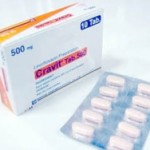CDC Changes the Drug of Choice for Gonorrhea
Cefixime, the drug of choice for gonorrhea in the United States, is no longer recommended by Centers of Disease Control and Prevent due to possibility or drug resistance of the bacteria that causes the disease. Research studies shows that cefixime is less effective in treating gonorrhea which is a sexually transmitted disease.
Now, Ceftriaxone is the only drug that is proven to be effective against gonorrhea. This antibiotic is administered intravenously.
A combination therapy of injectable ceftriaxone with oral antibiotic, either doxycycline or azithromycin, is being recommended by the revised guidelines of CDC as the most effective treatment for gonorrhea.
“As cefixime is losing its effectiveness as a treatment for gonorrhea infections, this change is a critical pre-emptive strike to preserve ceftriaxone, our last proven treatment option. Changing how we treat infections now may buy the time needed to develop new treatment options,” said Kevin Fenton, M.D., director of CDC’s National Center for HIV/AIDS, STD, Viral hepatitis and Tuberculosis Prevention.
The guidelines included steps for follow up to monitor each patient if there are failure of the treatment using ceftriaxone. Patients with recurrent symptoms must undergo series of tests to know the possible cause of treatment failure.
